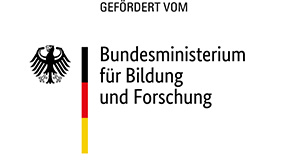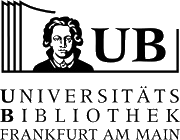Digitalisierung, Inklusion und Gamification. Verschränkung von Querschnittsthemen in der Lehrkräftebildung im Lehr-Lern-Raum Inklusion
Digitization, Inclusion, and Gamification. Interweaving cross-cutting issues in teacher education in the teaching-learning space of inclusion
DOI:
https://doi.org/10.21248/qfi.124Schlagworte/Keywords
Inklusion, Digitalisierung, Gamification, Escape Room, Innovation, Transformation, Inclusion, digitalizationZusammenfassung
Der Beitrag thematisiert die konkreten Herausforderungen, die die sozialen Transformationsprozesse Digitalisierung und Inklusion für die Lehrkräftebildung erzeugen. Einerseits müssen zukünftigen Lehrkräften Kompetenzen vermittelt werden, um innovative digitale und inklusive Lernumgebungen gestalten zu können. Andererseits herrschen an den Schulen sehr unterschiedliche Rahmenbedingungen, die inklusive und digitale Unterrichtssettings beeinflussen. Berufspraktische Erfahrungen fallen daher sehr unterschiedlich aus und lassen kaum systematische Einsichten über den didaktischen und pädagogischen Mehrwert innovativer Ansätze zu. Letztlich scheitern diese in der berufspraktischen Ausbildungsphase häufig bereits an verfügbarer Technik oder an einer fehlenden adäquaten räumlichen Ausstattung. Im Beitrag thematisieren wir von dieser Problemlage ausgehend das Konzept des Lehr-Lern-Raumes Inklusion, indem Studierende auf innovative und flexibilisierte Lernszenarien vorbereitet werden. Am Beispiel des Gamification-Ansatzes wird dabei gezeigt, wie Inklusion und Digitalisierung sinnvoll als gemeinsame Themen der Lehrkräftebildung vermittelt werden können.
Abstract
This article addresses the concrete challenges that the social transformation processes of digitization and inclusion create for teacher education. On the one hand, the current structure of teacher training makes it difficult to consider digitization and inclusion as joint development tasks. On the other hand, schools have very different framework conditions that influence inclusive and digital teaching settings. Professional experience, therefore, varies greatly and hardly allows for systematic insights into the didactic and pedagogical added value of innovative approaches. Ultimately, these often fail in the practical training phase due to the availability of technology or the lack of an adequate spatial learning environment. In this article, we address the concept of teaching-learning space inclusion based on this problem situation by preparing students for innovative and flexible learning scenarios. Using the gamification approach as an example, we show how inclusion and digitalization can be meaningfully taught as common topics in teacher education.
Downloads
Veröffentlicht
Ausgabe
Rubrik
Lizenz
Copyright (c) 2023 Frank Beier, Tina Czaja

Dieses Werk steht unter der Lizenz Creative Commons Namensnennung - Keine Bearbeitungen 4.0 International.



